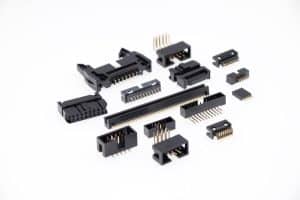Teacher Effectiveness: Quality Instruction
In order for students to succeed academically, they need to have effective teachers who are able to provide quality instruction in the classroom. Teacher effectiveness has become a growing concern in education, with research showing that it is a crucial factor in student achievement. Quality instruction is a key component of teacher effectiveness and plays a significant role in shaping student learning. In this article, we will explore the concept of teacher effectiveness and the importance of quality instruction in improving student outcomes.
The Definition of Teacher Effectiveness
Teacher effectiveness refers to the ability of a teacher to positively impact student learning and achievement. It is a measure of how well a teacher is able to facilitate student growth and progress in academic, social, and emotional domains. According to the National Council on Teacher Quality, effective teachers are those who have a significant and measurable impact on student achievement.
The Factors that Influence Teacher Effectiveness
Teacher effectiveness is a complex concept influenced by many factors. These factors include the teacher’s knowledge and skills, teaching strategies, classroom management, and personal qualities such as motivation and dedication. Research has also shown that teacher experience and collaboration with colleagues can have a significant impact on teacher effectiveness.
The Role of Quality Instruction in Teacher Effectiveness
Quality instruction is a critical component of teacher effectiveness. It refers to the ability of a teacher to design and deliver instruction that meets the diverse needs of students and promotes their learning and development. Quality instruction includes using evidence-based teaching practices, providing clear and structured lessons, and using formative assessment to monitor and adjust instruction to meet the needs of students.
The Impact of Quality Instruction on Student Outcomes
Research has consistently shown that quality instruction has a significant impact on student outcomes. When teachers are able to provide effective instruction, students show improved academic achievement, higher levels of engagement, and better attitudes towards learning. Quality instruction also helps to reduce achievement gaps and improve outcomes for underserved students.
Tips for Teachers to Improve their Instructional Effectiveness
While there is no one-size-fits-all approach to becoming an effective teacher, there are some key tips that teachers can use to improve their instructional effectiveness:
1. Continuously build your knowledge and skills
Effective teachers are lifelong learners. They continuously seek out opportunities to improve their knowledge and skills, whether through professional development workshops, conferences, or research. This allows them to stay up-to-date with the latest educational theories, pedagogies, and technologies.
2. Create a positive and inclusive learning environment
A positive and inclusive learning environment is essential for quality instruction to take place. Effective teachers foster a supportive and safe classroom environment where all students feel valued and respected. They also build positive relationships with students, which helps to create a conducive learning atmosphere.
3. Use a variety of instructional strategies
No two students learn the same way, which is why effective teachers use a variety of instructional strategies to meet the diverse needs of their students. They use a mix of direct instruction, cooperative learning, and inquiry-based learning to engage students and promote deeper learning.
4. Use technology to enhance instruction
In today’s digital age, technology has become an integral part of the classroom. Quality instruction is enhanced when teachers use technology to facilitate learning and provide students with opportunities for collaboration, creativity, and critical thinking.
5. Reflect on your practice
Effective teachers are reflective practitioners. They regularly reflect on their teaching practice, identify areas for improvement, and make necessary adjustments. This helps them to continuously improve their instructional effectiveness and promote student learning and growth.
Conclusion
Teacher effectiveness is crucial for student success, and quality instruction is a vital component of teacher effectiveness. By continuously building their knowledge and skills, creating a positive learning environment, using a variety of instructional strategies, and integrating technology into their teaching, teachers can improve their instructional effectiveness and positively impact student outcomes. As you strive to become an effective teacher, remember that quality instruction is the key to unlocking student potential and promoting lifelong learning.








